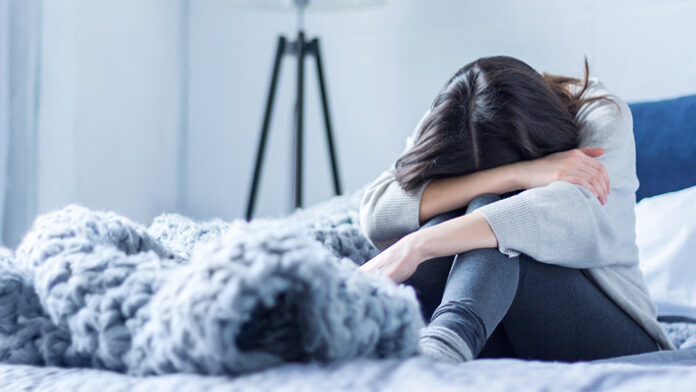The term “Sunday Scaries” refers to the anxiety, dread, and unease that many people experience on Sunday evenings, in anticipation of the upcoming workweek. This phenomenon is commonly associated with the transition from the weekend, a period of relaxation and leisure, back to the responsibilities and demands of the workweek. The Sunday Scaries can manifest in various ways, including a sense of impending doom, increased stress, and difficulty sleeping.
How to Conquer Sunday Scaries
What Causes Sunday Scaries?
Several factors contribute to the Sunday Scaries, and understanding these causes can help in managing and mitigating their effects. Here are some of the primary reasons:
- Work-Related Stress: One of the most common causes of the Sunday Scaries is stress related to work. This can include concerns about upcoming deadlines, meetings, workload, and interactions with colleagues or supervisors. The thought of returning to a high-pressure environment after a relaxing weekend can trigger anxiety and dread.
- Lack of Work-Life Balance: When individuals struggle to balance their work and personal lives, the boundaries between the two can become blurred. This lack of separation can make it difficult to fully unwind during the weekend, leading to increased anxiety as Sunday evening approaches.
- Unfinished Tasks: If you leave work on Friday with unfinished tasks or unresolved issues, the prospect of dealing with them on Monday can be daunting. This sense of unfinished business can contribute to feelings of unease and anxiety on Sunday evenings.
- Negative Work Environment: A toxic or unsupportive work environment can exacerbate the Sunday Scaries. If you dread interactions with certain colleagues or supervisors, or if your workplace is generally stressful, the anticipation of returning can be particularly anxiety-inducing.
- Sleep Patterns: Irregular sleep patterns over the weekend, such as staying up late and sleeping in, can disrupt your body’s natural rhythm. This disruption can make it harder to fall asleep on Sunday night, contributing to feelings of anxiety and restlessness.
- General Anxiety: For some individuals, the Sunday Scaries may be a manifestation of a broader anxiety disorder. People with generalized anxiety disorder (GAD) may experience heightened anxiety in various situations, including the anticipation of the workweek.
What Are the Sunday Scaries in Psychology?
From a psychological perspective, the Sunday Scaries can be understood through various theories and concepts. Here are some key psychological insights:
- Anticipatory Anxiety: The Sunday Scaries are a form of anticipatory anxiety, which is the anxiety experienced in anticipation of a future event. This type of anxiety is common and can be triggered by the thought of facing challenges, stressors, or uncertainties in the upcoming week.
- Cognitive-Behavioral Factors: Cognitive-behavioral theories suggest that the Sunday Scaries are influenced by negative thought patterns and behaviors. For example, catastrophizing (expecting the worst possible outcome) and rumination (repeatedly thinking about stressful events) can intensify feelings of anxiety.
- Conditioned Response: Over time, the Sunday Scaries can become a conditioned response. If you consistently experience anxiety on Sunday evenings, your body and mind may start to associate this time with feelings of stress and unease, creating a self-reinforcing cycle.
- Stress Response: The Sunday Scaries can activate the body’s stress response, leading to physical symptoms such as increased heart rate, muscle tension, and difficulty sleeping. This response is part of the body’s natural fight-or-flight mechanism, which is triggered by perceived threats or stressors.
- Circadian Rhythms: Disruptions to circadian rhythms, which regulate sleep-wake cycles, can contribute to the Sunday Scaries. Irregular sleep patterns over the weekend can make it difficult to transition back to a regular schedule, exacerbating feelings of anxiety and restlessness.
What Is the Diagnosis of Sunday Scaries?
While the Sunday Scaries are a common experience, they are not a formal medical diagnosis. However, the anxiety and stress associated with the Sunday Scaries can be symptoms of broader mental health issues. Here are some key points to consider:
- Differentiating from Anxiety Disorders: It’s important to differentiate the Sunday Scaries from more generalized anxiety disorders. While the Sunday Scaries are typically situational and related to the transition from weekend to workweek, generalized anxiety disorder (GAD) involves persistent and excessive worry about various aspects of life.
- Assessing Severity: If the Sunday Scaries are severe and significantly impact your well-being and functioning, it may be indicative of an underlying anxiety disorder or stress-related condition. In such cases, seeking professional help from a therapist or counselor is advisable.
- Professional Evaluation: A mental health professional can conduct a thorough evaluation to determine if your Sunday Scaries are part of a larger mental health issue. This evaluation may include a clinical interview, questionnaires, and assessment of your overall mental health and lifestyle.
- Diagnosis Criteria: For a diagnosis of an anxiety disorder, mental health professionals refer to criteria outlined in the Diagnostic and Statistical Manual of Mental Disorders (DSM-5). Key criteria include the presence of excessive anxiety and worry, difficulty controlling the worry, and associated physical or cognitive symptoms.

